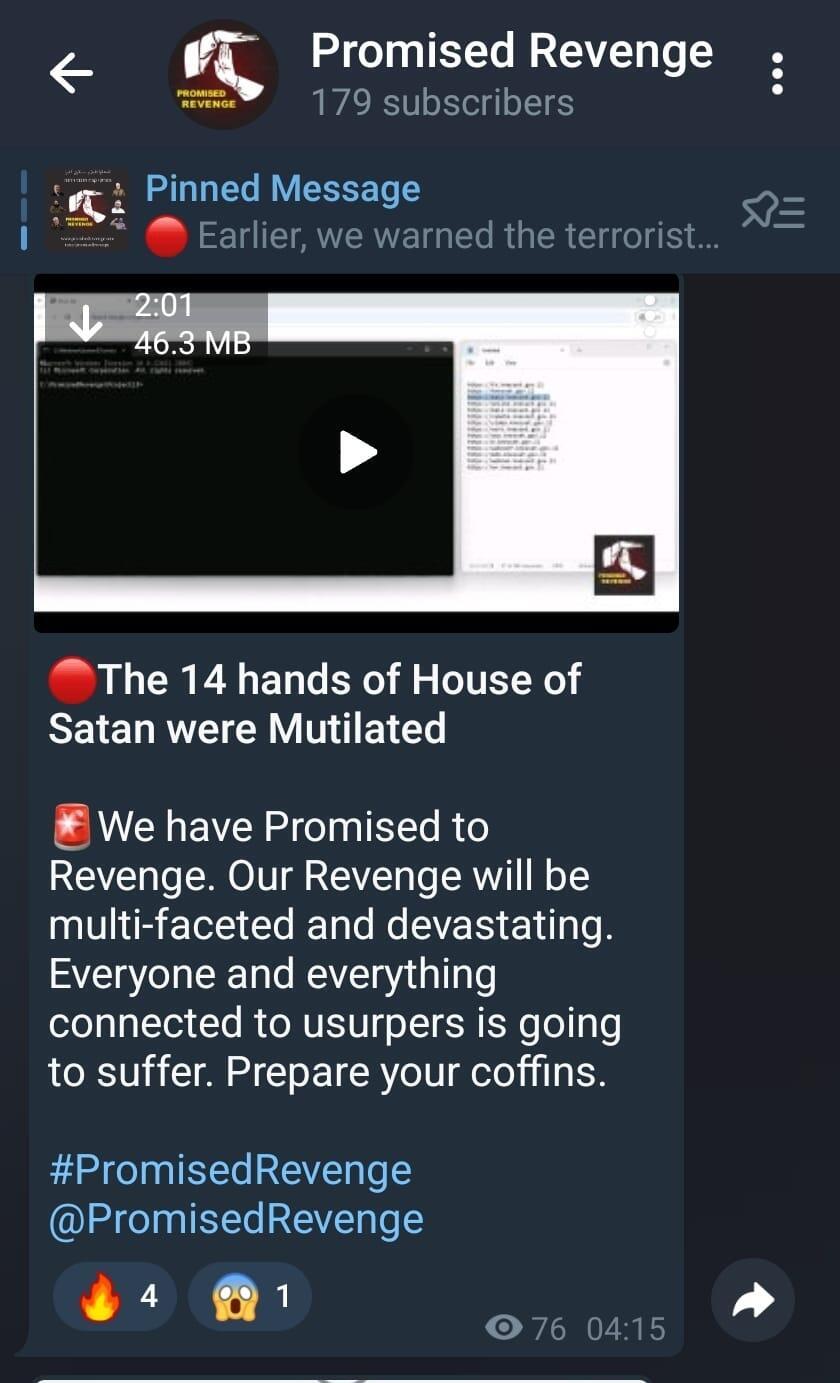Getting your Trinity Audio player ready...
Prior to Hezbollah’s planned attack and Israel’s countermeasures on Sunday, Ynet on Saturday reported on a widespread fear-mongering SMS campaign by the terror group that was seemingly sent from the Knesset website to many Israeli citizens.
It can now be reported that this campaign was launched by Hezbollah, which, as part of an attempted psychological warfare operation, tried to take responsibility for the Knesset website's unavailability in recent days.
According to Israeli cybersecurity company Check Point, the campaign began on the Telegram messaging app, which has garnered much attention in the past two days following the arrest of its founder in France on Saturday.
A hacker group affiliated with Hezbollah and Iran released a video boasting that the Knesset website was down. In the video, distributed on its channel and others, the terror group claimed responsibility for the website being down.
However, an inquiry with the Knesset spokesperson revealed that the site was taken down last week for scheduled server infrastructure maintenance works and that its unavailability had nothing to do with any cyberattack. Nonetheless, the Knesset confirmed that attempts at a cyberattack were detected in advance and "blocked."
The terror group likely noticed the Knesset website was inactive; at the same time, a propaganda video was prepared, claiming responsibility for the outage, alongside a widespread SMS campaign sent to thousands or even hundreds of thousands of Israeli citizens urging them to visit the site and see it was offline.
The result was supposed to lead to panic or concern among the public about Hezbollah's supposedly advanced cyber capabilities, which managed to take down the Knesset’s website.
The Knesset website operates in an "open Knesset" format, meaning that all published materials are fully open and transparent. In fact, the entire site can even be downloaded for research purposes, for example.
As a result, the website isn’t linked to the Knesset's computer systems or the government’s operational systems. Even if the site were to be "hacked," it contains no information that would be useful to hackers or hostile entities.
Hezbollah’s use of this incident doesn’t diminish the fact that dangerous attacks on Israel's technological and digital infrastructures are ongoing at all times. The vast majority of these attacks are fended off before they can cause real damage.
In rare cases, they lead to the shutdown of services for citizens, such as during cyberattacks on hospitals or health care services, which are highly sensitive to such attacks.




